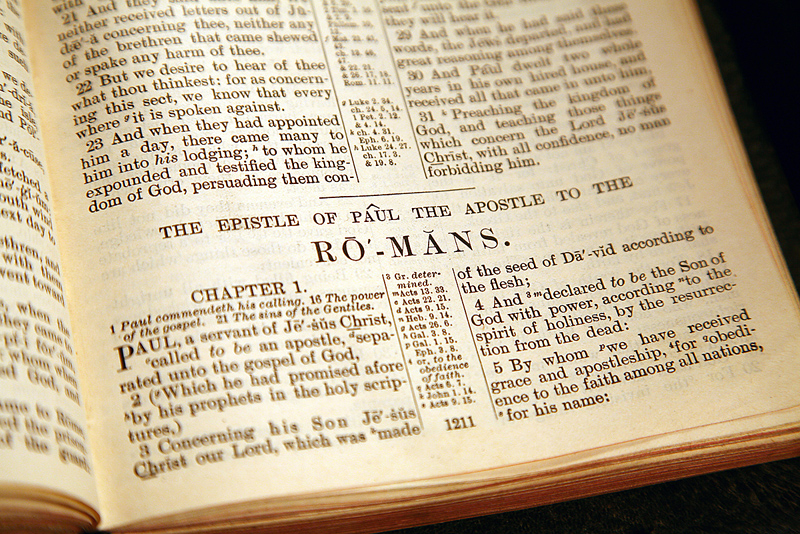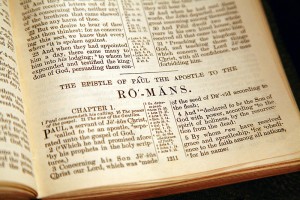Romans 6:14–15 says,
For sin shall not have dominion over you, for you are not under the law, but under grace.…What then? Shall we sin, because we are not under the law, but under grace? Elohim forbid!
What is Paul saying here? Paul is saying that sin (i.e., Torahlessness, 1 John 3:4) shall not have dominion over those who have faith in Yeshua and who have died to their old sinful nature as pictured by the baptism ritual (Rom 6:1–10). The Bible is clear: the wages or sting of sin is death (Rom 6:23; 1 Cor 15:56), for sin is the violation of the Torah (1 John 3:4), and those who are spiritually alive to Elohim through Yeshua (Rom 6:11) not only have had their sins forgiven, but they’re not continuing in habitual sin (1 John 3:4–9). They are walking under YHVH’s merciful grace, so that if they sin (i.e., violate the Torah), they can repent and receive his grace (1 John 1:9) instead of death. This is why Paul can say that the redeemed believer is no longer under the (penalty of) the Torah, but is under grace (Rom 6:14).
Because we are under grace and we have been spared by Elohim’s mercy from the penalty for sinning (i.e., violating the Torah), which is death, does this mean that we can continue in sin (i.e., continue violating the Torah, Rom 6:15)? Certainly not! Paul strongly affirms this in verse fifteen. Elohim’s grace doesn’t give us a license to sin (i.e., to violate the Torah, 1 John 3:4). If a saint sins, he must repent of his sin and not continue in his sin (1 John 1:9), so that the mercy and grace of Elohim will cover his transgression.
Paul then goes to say (Rom 6:16–23) that since we are no longer slaves to sin because of our relationship with Elohim through Yeshua, we now have become slaves to righteousness (i.e., Torah obedience, see Ps 119:172 where righteousness is defined as Torah-obedience). The Torah not only defines what sin is, but also shows us how not to sin. It is the grace of Elohim that not only gives us grace or unmerited pardon for violating the Torah (i.e., sin), but the same grace divinely enables us to live in obedience to the Torah, so that we will not come under the (penalty of) the Torah through sinfulness. This is why Paul can go on to declare that the Torah is holy, and the commandment holy, just and good (Rom 7:12). It reveals to us the path of righteousness and how not to sin by showing us how to love Elohim and our neighbor.





